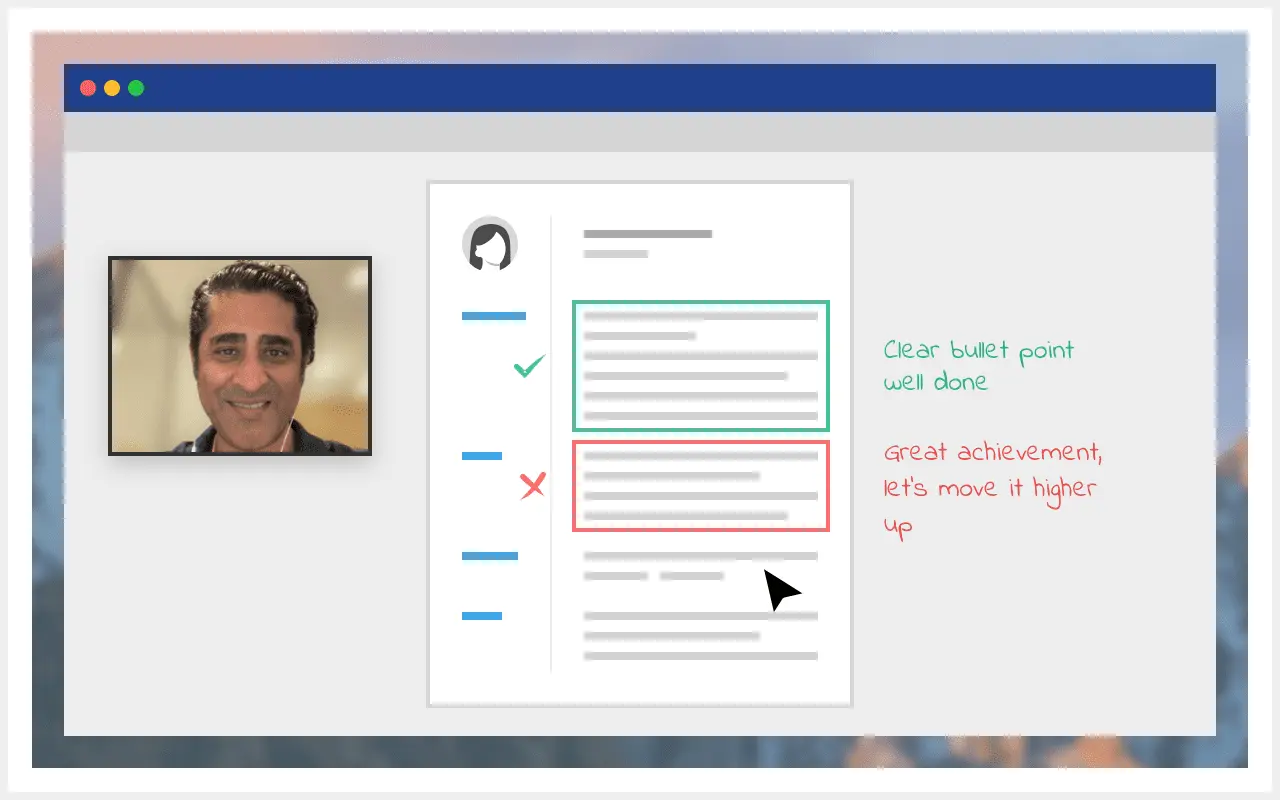Top consulting firms like McKinsey, BCG and Bain all recruit experienced hires. But getting in can be difficult because the recruiting process is not as streamlined as for fresh undergraduates and MBAs.
In our experience, the trickiest step for experienced hires is to actually get an interview. Once you are in front of McKinsey, BCG and Bain recruiters your chances will be as good as anyone else's. But cracking that first step is often the biggest challenge you will face.
So let's review how you can craft a great experienced hire consulting resume that will help you land multiple interviews.
Note: The tips we discuss here are specific to experienced hires. In addition to these tips, you should also read our general consulting resume and consulting cover letter guides for additional advice.
Click here for a resume review with an ex-MBB consultant
1. Keep it to one page
We regularly work with experienced hires as part of our consulting resume review service, and a question we often get asked is: "Can my resume be longer than one page? I've had many jobs in the past and find it difficult to summarise everything I've done in a single page."
To answer that question it's important to understand what the objective of your resume is. Its objective is to get you an interview. And the best way to achieve this is by highlighting your most impressive achievements relevant to the job you are applying for. The objective of your resume is NOT to summarise all the jobs and responsibilities you've had to date.
A good resume isn't necessarily exhaustive. A good resume paints you in the best light possible. It cherry picks the most impressive things you have achieved to date and summarises them in a way that makes it obvious to the person reading your CV that they should invite you for an interview.
With that in mind, in our experience most resumes can be condensed to one page. This is the case even if you have worked for 15+ years. As an extreme example, we've worked with a former Chief HR Officer from a large US company with more than 25 years of experience who was applying for BCG in the past. And even in his case one page was sufficient to summarise his most relevant achievements.
A useful tip to achieve this if you've worked for 15+ years is to summarise the first few years of your career. For instance you could use the format below. This then gives you enough space to focus the rest of your resume on more recent (and usually more senior) achievements.
|
Various HR roles in London (UK), Durban (South Africa) and Hong Kong 1990 to 2005 I started my career in 1900 in South Africa, initially in retail sales then insurance sales, before focusing on HR and held various roles in London and Hong Kong culminating as Chief Human Resources Officer of a large apparel group with 11 P&L brands including X, Y and Z. |
2. Write result-oriented bullet points
The second most important tip about your resume is that your bullet points should be result-oriented. The best way to achieve this is to:
- Start your bullet points with success verbs
- Focus your bullet points on the impact you had
- Quantify the impact whenever possible
If you are not sure what success verbs are, you can check our consulting resume keywords article where we cover this in detail. Here is an example of what we mean by focusing on impact and trying to quantify it:
- Wasted bullet point: "Responsible for finance monthly reports"
- Boring bullet point: "Made improvements to the finance monthly reports process"
- Result-oriented bullet point: "Designed and implemented a new finance monthly reports process resulting in 2 FTE savings"
Note how the best bullet point starts with a success verb (i.e.: "designed", "implemented"), how it focuses on your impact (i.e.: "resulting") and how it is quantified (i.e.: "2 FTE savings"). We encourage you to strive to achieve this for each of your bullet points. It takes a bit of time but will really make you stand out.
3. Leverage your network
Finally, you should leverage your professional network as much as possible. Doing this properly can often make the difference between getting and not getting an interview as an experienced hire.
A good approach is to start by listing all the consultants in your network. Maybe you've got University classmates who went into consulting. Or former colleagues who are now consultants or used to be consultants. Or maybe you were part of a project that involved consultants in one of your previous jobs. Or you've got friends of friends who are consultants. Anyone who works or used to work for a consulting firm is good starting point - leave no stones unturned!
Once you've built a list of contacts you should reach out to them to ask about their experience working for the firm you are targeting and to also get their advice on the best way to land an interview there. Even if they're not from the office or practice which you are targeting it's still worth reaching out as they could put you in touch with people inside the firm who belong to the team you are interested in.
Additional resources
The article above as well as our consulting resume and consulting cover letter guides should go a long way in helping you get an interview. But if after using them you still feel you need additional help, we have also put together a resume review service for you.
By signing up to this service, you can choose from a team of ex-MBB recruiters and interviewers, who will spend an hour going over your resume with you. You’ll get feedback on how to immediately improve your resume, including what experience to focus on, how to optimize your phrasing, formatting, etc.
Check it out, you'll be in good hands!














